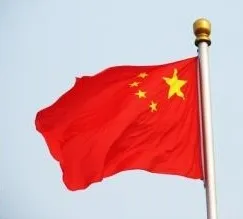Should We Decolonize the Chinese Empire Instead of Just Replacing the CCP?

Synopsis
Key Takeaways
- China's colonial empire includes East Turkistan, Tibet, and Southern Mongolia.
- Decolonization is essential for the independence of these nations.
- Replacing the CCP without addressing imperial structures is insufficient.
- Historical context shows these regions were never part of China.
- The U.S. must take decisive action to support these nations' struggles.
New Delhi: US policymakers have consistently regarded the Chinese Communist Party (CCP) as the foremost threat to both America’s national security and the global order. However, China's biggest weakness is not with the Party itself but within the colonial empire it has aggressively established through the conquest of East Turkistan, Tibet, and Southern Mongolia. These regions are not merely “provinces of China” or “secessionist movements”.
They represent captive nations whose ongoing occupation reinforces Beijing’s imperial dominance and bolsters its aspirations for global supremacy. An effective U.S. strategy for a future without the CCP must advocate for the decolonization and restoration of independence for these territories. The Hudson Institute’s report, China After Communism: Preparing for a Post-CCP China, envisions a future beyond the CCP but neglects the imperial framework that will persist if Chinese colonialism remains unchallenged.
Historically, before their subjugation by the Manchu Qing Empire, East Turkistan, Tibet, and Mongolia were independent nations with unique languages, religions, and political structures. They were never part of China.
The Great Wall of China, whose westernmost gate at Jiayuguan marked the traditional limit of China, excluded these territories. Everything beyond the Wall was regarded as foreign land, contradicting contemporary Chinese imperialist narratives of “historical unity”.
Through military conquest, the Manchu Empire subdued these regions, and the 1911 revolution did not dismantle this colonial empire. Instead, Chinese imperialists aimed to maintain the Qing’s imperial borders, which Western powers accepted for stability.
The CCP later finalized this imperial agenda by forcibly occupying former Qing colonies, many of which had declared independence, while misrepresenting their conquest as “national unification”.
In contrast to the misguided assumptions in the Hudson Institute’s report, the plight of East Turkistan, Tibet, and Southern Mongolia is not a matter of reforming the Beijing regime; it is about dismantling the imperial structure that has oppressed them for over seventy years. The report’s articles envision a “democratic China” inheriting the colonial empire.
This notion is fundamentally erroneous. Substituting one imperialist regime with another does not rectify the issues rooted in Chinese colonialism. Maintaining the borders of the Chinese empire while replacing the CCP with another regime will not alleviate the oppression faced by non-Chinese nations, nor will it mitigate China’s threat to global stability.
Genuine freedom and security necessitate the comprehensive restoration of independence for these nations and the dismantling of China’s imperial structure.
The Hudson report mischaracterizes these anti-colonial liberation movements by framing them as seeking “Xinjiang independence” or “independence from China”, distorting historical and legal realities.
The inhabitants of East Turkistan, Tibet, and Southern Mongolia are not attempting to secede from China, as they were never legitimately part of it. Instead, they are advocating for the restoration of their rightful independence and sovereignty.
These nations were sovereign before their conquest by the Manchu (Qing) Empire. East Turkistan briefly regained its independence in 1933 and again in 1944, only to be annexed by the newly established Chinese Communist regime through military force in late 1949. Tibet also reasserted its independence from 1913 until it was invaded and occupied by the Chinese Communist regime in 1950.
The Chinese term “Xinjiang”, meaning “New Territory”, is a colonial term imposed to erase East Turkistan’s unique identity, history, and rightful claims to sovereignty.
Proposals for “autonomy” reflect the deceitful tactics of both the Kuomintang and the CCP. These proposals aim to pacify anti-colonial movements while advancing Chinese colonization under a different guise.
Since 1955, East Turkistan’s so-called autonomy has concealed systemic genocide, forced sterilization, cultural and physical erasure, and mass enslavement of Uyghurs, Kazakhs, and other Turkic peoples. The suggestion that “autonomy” can protect the East Turkistani people is not only misleading but also perilous.
A particularly alarming suggestion in the report is that Uyghurs be confined to a “southern autonomous zone” while the north remains under Han control, essentially partitioning East Turkistan. This reflects an imperialist mindset aimed at solidifying Chinese colonial rule and facilitating the establishment of a “secondary Chinese capital” in East Turkistan.
The only equitable solution is complete decolonization and the restoration of national sovereignty.
The report also undermines its credibility by using the colonial term “Xinjiang” and arguing that U.S. support for independence should hinge on strategic interests. This perspective reduces fundamental rights to geopolitical bargaining. By noting that several Uyghur diaspora groups “advocate for peaceful democratic transition”, it inaccurately and dangerously implies that Uyghurs would accept continued Chinese governance under “democratic reforms”.
In truth, informal surveys and preliminary polls among the East Turkistani diaspora consistently show that over 90 percent favor complete independence rather than piecemeal reform or so-called “autonomy”. As a people enduring decades-long systemic racism, genocide, and colonization under the Chinese, it is a factual and reasonable conclusion that the vast majority of East Turkistan’s indigenous population wants nothing to do with China. They would reject any form of ongoing Chinese rule, including rebranded or nominal autonomy.
Even more concerning is the report’s notion that CCP members could participate in East Turkistan’s future governance. This is unacceptable. It is as morally reprehensible as suggesting Nazi collaborators govern post-Holocaust Israel or allowing Russian occupiers to draft Ukraine’s constitution. Such compromises betray the principles of justice and self-determination.
Moreover, the report dismisses governments-in-exile, wrongly equating them with externally imposed regimes. This comparison is misguided. Institutions like the East Turkistan Government in Exile (ETGE) serve as provisional, transitional bodies representing the quest for decolonization and independence. The ETGE is committed to dissolution once East Turkistan’s sovereignty is restored and free, democratic elections are conducted.
The report’s optimism regarding Han Chinese support for Uyghurs is similarly misplaced. Citing Nury Turkel, it suggests that informed Han Chinese citizens might oppose the repression of Uyghurs. However, the 2022 Urumchi protests were primarily driven by discontent over COVID-19 lockdowns, not solidarity with Uyghurs. Chinese protesters chanted “end the lockdown”, not “free the Uyghurs” or “shut down the camps”.
In reality, many Han Chinese, especially those connected with the paramilitary Xinjiang Production and Construction Corps, have taken an active role in surveillance, forced home stays, and violent repression, playing a central part in the ongoing Uyghur genocide.
Furthermore, numerous Chinese nationalists, democrats, communists, and even Huis (Chinese Muslims) share the colonial view that East Turkistan is an “inseparable part of China”, highlighting how deeply entrenched Chinese imperialist ideology is within Chinese society.
As Wang Lixiong cautioned in My West China, Your East Turkestan: “Han intellectuals… appear open-minded… but as soon as we touch the topic of Xinjiang, the word ‘kill’ streams out… If genocide can keep Xinjiang under China’s sovereignty, they will stay composed.” A 2019 VICE documentary captured an elderly Chinese colonist farmer stating: “Minorities and the Han need to be the same… I don’t [feel sorry for the Uyghurs].”
The Chinese colonial mindset remains deeply entrenched both in China and across its diaspora. Notable “democracy” activist Wei Jingsheng has labeled East Turkistan independence supporters as “terrorists”, accused them of orchestrating the 2009 Urumchi protests, and denied that Uyghurs were ever historically independent, branding pro-independence advocates as “extremists”, echoing the revisionist, imperialist propaganda of the CCP.
In France, a Chinese-descended MP opposed a motion recognizing the Uyghur genocide. In Canada, a Chinese-descended senator similarly opposed a motion in Canada’s Parliament. In the Netherlands, 55 Chinese diaspora organizations condemned the Dutch Parliament’s acknowledgment of the Uyghur genocide. These instances illustrate that the Chinese colonial mindset persists, even among Chinese elites in free societies.
Washington must take concrete steps to endorse the decolonization of East Turkistan, Tibet, and Southern Mongolia. The United States should formally recognize these nations as illegally occupied, in accordance with the 1959 Captive Nations Resolution (Public Law 86-90). It must also extend political, economic, and diplomatic support to their legitimate representatives leading the struggle for decolonization and independence and facilitate their inclusion in international forums, including the United Nations.
Justice demands more than mere words. It requires decisive action. Just as the U.S. opposed European colonialism under the Monroe Doctrine and Soviet imperialism under the Captive Nations framework, it must now stand with the captive nations against Chinese imperialism.
Supporting the decolonization and independence of East Turkistan, Tibet, and Southern Mongolia is both a moral duty and a strategic necessity. It is crucial to counter Chinese expansion and promote a fair, rules-based, and stable international order.
(Salih Hudayar is the Minister of Foreign Affairs and Security for the East Turkistan Government-in-Exile and the leader of the East Turkistan National Movement. His X handle is @SalihHudayar. The opinions expressed in this article are personal.)










